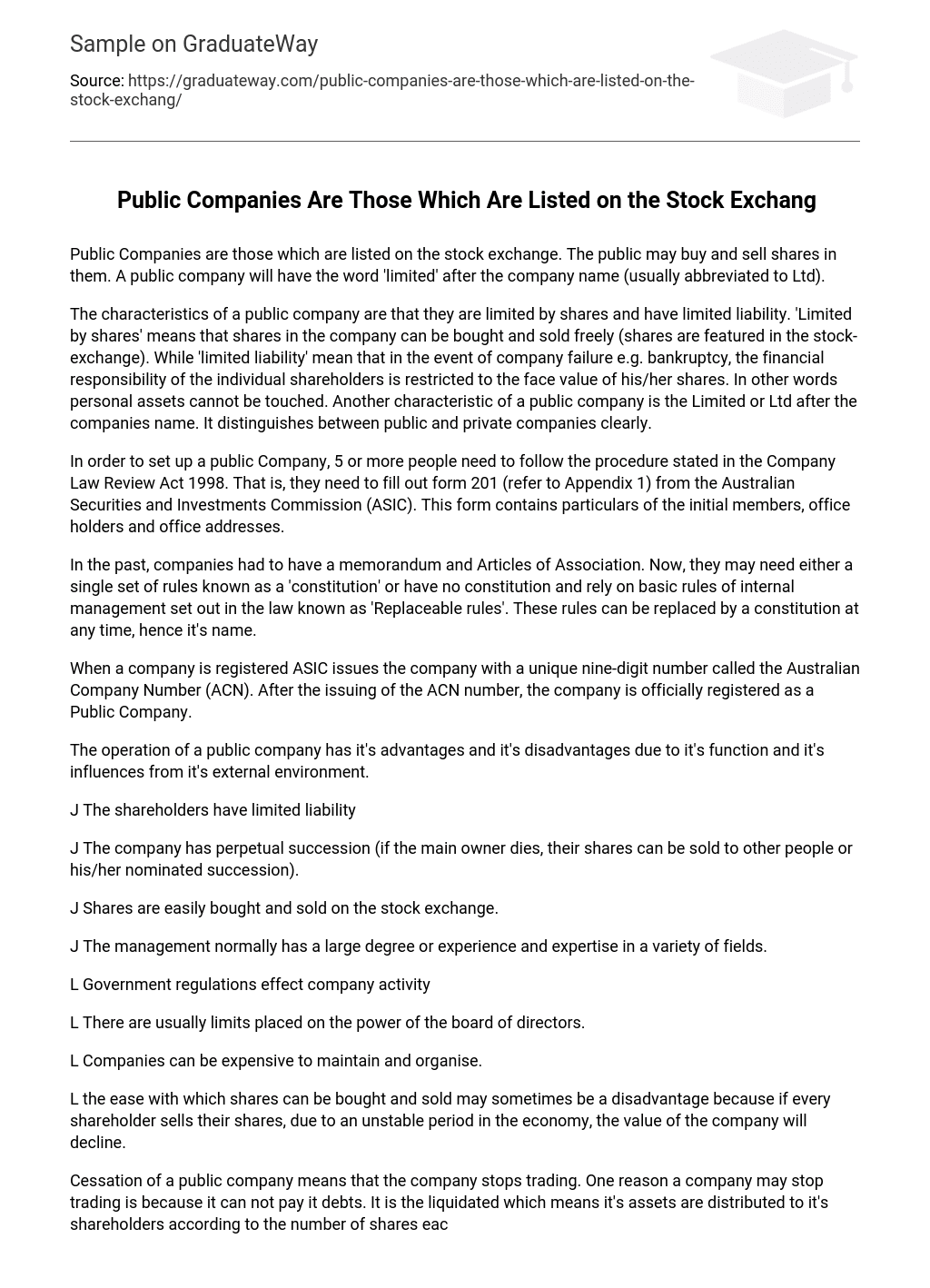Public Companies are those which are listed on the stock exchange. The public may buy and sell shares in them. A public company will have the word ‘limited’ after the company name (usually abbreviated to Ltd).
The characteristics of a public company are that they are limited by shares and have limited liability. ‘Limited by shares’ means that shares in the company can be bought and sold freely (shares are featured in the stock-exchange). While ‘limited liability’ mean that in the event of company failure e.g. bankruptcy, the financial responsibility of the individual shareholders is restricted to the face value of his/her shares. In other words personal assets cannot be touched. Another characteristic of a public company is the Limited or Ltd after the companies name. It distinguishes between public and private companies clearly.
In order to set up a public Company, 5 or more people need to follow the procedure stated in the Company Law Review Act 1998. That is, they need to fill out form 201 (refer to Appendix 1) from the Australian Securities and Investments Commission (ASIC). This form contains particulars of the initial members, office holders and office addresses.
In the past, companies had to have a memorandum and Articles of Association. Now, they may need either a single set of rules known as a ‘constitution’ or have no constitution and rely on basic rules of internal management set out in the law known as ‘Replaceable rules’. These rules can be replaced by a constitution at any time, hence it’s name.
When a company is registered ASIC issues the company with a unique nine-digit number called the Australian Company Number (ACN). After the issuing of the ACN number, the company is officially registered as a Public Company.
The operation of a public company has it’s advantages and it’s disadvantages due to it’s function and it’s influences from it’s external environment.
J The shareholders have limited liability
J The company has perpetual succession (if the main owner dies, their shares can be sold to other people or his/her nominated succession).
J Shares are easily bought and sold on the stock exchange.
J The management normally has a large degree or experience and expertise in a variety of fields.
L Government regulations effect company activity
L There are usually limits placed on the power of the board of directors.
L Companies can be expensive to maintain and organise.
L the ease with which shares can be bought and sold may sometimes be a disadvantage because if every shareholder sells their shares, due to an unstable period in the economy, the value of the company will decline.
Cessation of a public company means that the company stops trading. One reason a company may stop trading is because it can not pay it debts. It is the liquidated which means it’s assets are distributed to it’s shareholders according to the number of shares each person has.
Sometimes, when the company has difficulty paying it’s debts, the courts may appoint a receiver to decide if the business should continue to trade or close it down. The receiver is an independent manager, usually an accountant.
business and accounting
By Pat Whoo Copyright 1997





